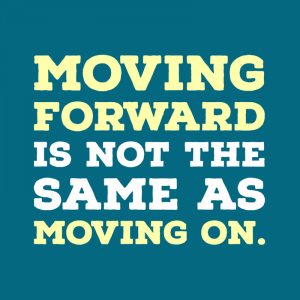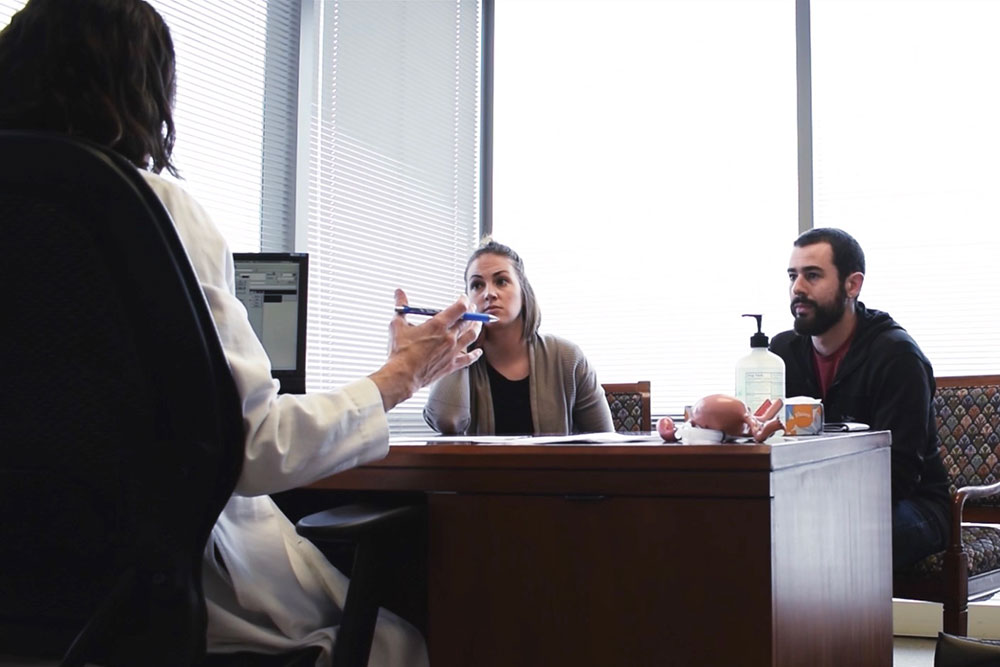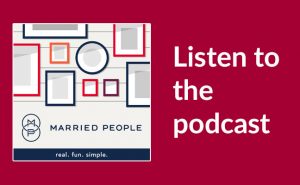I’ll never forget the Subway parking lot on Windward Parkway in Alpharetta, Ga. My wife, Teri, and I met there one Thursday in November 2017. Teri had texted me at lunchtime, telling me how rough her day at work was. But I knew this had nothing to do with work.
We didn’t eat at Subway that day—we just met in the parking lot since it was close to her work. I parked facing a retaining wall so people couldn’t see how emotional things were about to get. Teri pulled her car next to mine and got into my car.
The night before, we’d gotten another negative pregnancy test. This wasn’t new, but this one was harder on Teri than the previous ones. We had recently crossed the two-year mark in our journey of trying to get pregnant, even though we’d only been “officially trying” for 14 months. The 12 months before that were spent in and out of specialists’ offices, navigating health complications on my end, which gave us less than a 10% chance of being able to start a family biologically.
So that day in the Subway parking lot there was one word for what we were both feeling: stuck.
We’d already been through one treatment option that failed. And the treatment program we were currently on didn’t seem to be working either.
That day I remember Teri saying, through tears, things like:
- “I feel like we’re never going to get past this.”
- “I’m tired of seeing everyone else get pregnant.”
- “I don’t know how much longer I want to do this.”
- “We said a year ago that we felt like we were finally getting somewhere, but we’re still here.”
On Hold
 I remember that day so clearly because it opened my eyes to something we had been doing through the whole process that we didn’t even realize—putting our lives on hold.
I remember that day so clearly because it opened my eyes to something we had been doing through the whole process that we didn’t even realize—putting our lives on hold.
- We used to go on a few vacations and weekend trips throughout the year. We stopped going.
- Teri wanted to make a job transition into a new industry that required some certifications. We held off on the transition.
- We had some improvements we wanted to make to our house. We saved our money.
After all, what if we scheduled a vacation and that happened to be the week we needed to drive downtown for a treatment? What if we made an improvement to the house and realized that we’re short on funds to pay for the next fertility program?
We had been holding our breath just trying to make it to the “next season of life.” But in that Subway parking lot, it became obvious we were running out of air.
Teri and I had been putting our lives on hold for a long time, and that day we realized we couldn’t do it anymore. Putting our lives on hold was hurting us. We needed to get back to “normal life” again. We needed to get back to things we would have been doing had wanting to get pregnant not consumed all our energy.
Truthfully, it was harder to do than we thought. In a way, resuming “normal life” felt like we were admitting that the treatments weren’t working and that we were giving up.
But, we had to remind ourselves, moving forward is not the same as moving on. If anything, we told ourselves, it would give us more life and energy to persevere and keep trying. So in that car, we decided: Infertility isn’t going to keep our life on hold any longer.
But for us, this was only the first step.
What If?
One of the things that kept us putting our lives on hold is what I call the worst-case road. If you’ve been trying to get pregnant for any length of time, you’re probably familiar with it.
The worst-case road goes like this:
- “Since Clomid isn’t working, we’ll have to go the IUI route.”
- “But IUI only has a 15% success rate, and from there the next step is IVF.”
- “What if IVF is our only option and it doesn’t work the first time?”
- How many times could we afford to try IVF? Do you know how much it costs?”
Our infertility specialist quoted us $18,500 for our first cycle. And that scared us because our “worst-case road” always led to multiple IVF treatments.
We had to hit the brakes and stop going down that road in our minds.
As often as we followed the worst-case road, it was never helpful. In fact, going down this road is the reason we were putting our life on hold! If we really wanted our lives back, we had to stop assuming worst-case scenario.
So, in the Subway parking lot, we decided that we weren’t going down the worst-case road anymore.
In fact, we decided we were going to do the opposite. If one of us started entertaining the “what if’s,” the other would respond with something like . . .
- “Yeah, but what if the next treatment is the one that works?”
- “What if our next step is THE step?”
For every worst-case what if, there’s a best-case. And learning how to get our minds and conversations unstuck from the worst-case was really good for Teri and me—good for us individually and for our marriage.
Why? Because when we started talking about worst-case scenarios, it would quickly become ALL we talked about that day or that night.
Give Me a Break
Multiple times a week, Teri and I would find ourselves in hours-long conversations about infertility, biology, medications, treatments, blogs we read, doctor appointments we had, and so on.
It became what we talked about on date nights, in the morning over coffee, laying in bed at night, and just about everywhere else. Put plainly, it was really unhealthy.
Our conversations grew so focused on getting pregnant that our marriage, in a way, became about getting pregnant. In other words, getting pregnant took priority over everything. Before we talked about weekend plans, painting the living room, which of our coworkers matched which characters in The Office, and everything else married couples talk about, we talked about . . . infertility.
We had to stop talking about getting pregnant all the time. We needed a break. We needed infertility-free days and date nights—times we wouldn’t talk about getting pregnant no matter how much we wanted to—to remind us we were more than this label of infertility.
This wasn’t easy. After all, everything seems to remind you of the season you’re in. It felt like babies were everywhere. But this change was good for us. We needed days to fill up relationally with one another—because so many other days were draining. We needed days to talk about the things that were going to keep us from putting our lives on hold—like weekend trips and job aspirations.
Ultimately, it helped us prioritize each other and keep our marriage and our relationship the main thing, not our every single thought about infertility.
Post-Subway
 In some ways, our story ended with the kind of bow we all hope for in the middle of an infertility season. On December 20, 2018, we welcomed Harley, our miracle baby, into the world.
In some ways, our story ended with the kind of bow we all hope for in the middle of an infertility season. On December 20, 2018, we welcomed Harley, our miracle baby, into the world.
I know from the outside, it looks like it all worked out. But the truth is, there were years when we didn’t know how it would end, and we had to make decisions unsure of what the future would hold.
We made decisions in our season of infertility to save our sanity. And it made the months where we had to keep waiting a little easier. It wasn’t a magic bullet. It wasn’t a formula we followed that got us what we wanted. It was a way we resolved to make our now as healthy as possible, instead of focusing so much on what may or may not happen later.
Sometimes the story has an ending we pick. Sometimes it’s an ending we’d rather avoid. But in the days we didn’t know how our story would go, we made the decision to fight for what we could. Our marriage. Our relationship. Each other. And the season of infertility gave us plenty of opportunities to do that.
Through negative pregnancy tests.
False positives.
Medication side effects.
Expensive medical bills.
Tears.
“Are y’all thinking about kids yet?” conversations.
Unsuccessful treatments.
Moments of hopelessness.
Infertility already feels like it takes too much from us—the dream for a family we want, a future we imagine, a plan for how it might go—so don’t let it take your marriage as well.
Through it all, your marriage can actually get stronger. Honestly, to make it through something as tough as infertility, you need a strong marriage—a marriage strong enough to supply you and your spouse with the hope and encouragement you need to try again next month.
Keep trying. For the family you want and the marriage you can have. Right now. No matter how the story ends. Teri and I are praying for you.





